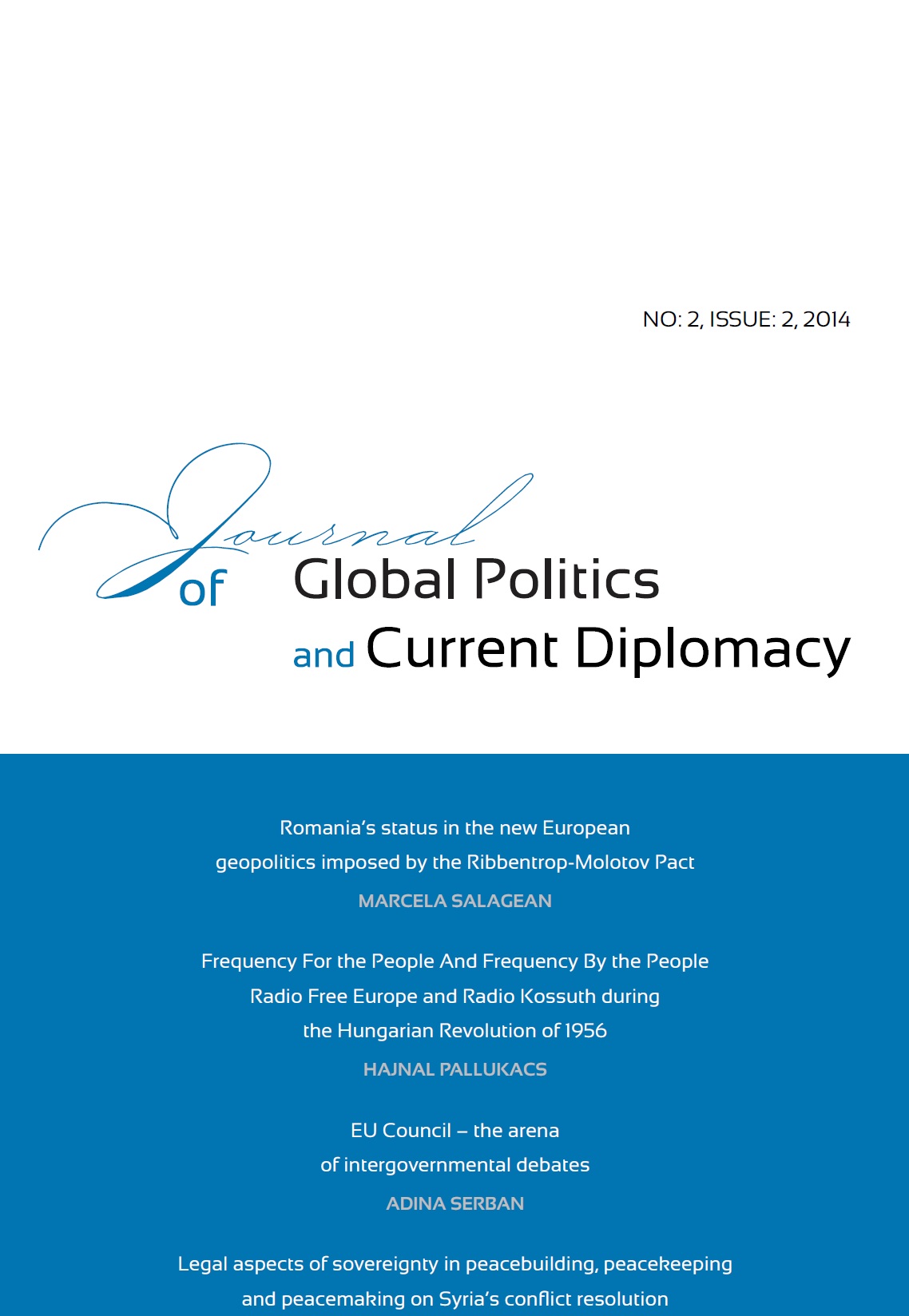Romania’s status in the new European geopolitics imposed by the Ribbentrop-Molotov Pact
Romania’s status in the new European geopolitics imposed by the Ribbentrop-Molotov Pact
Author(s): Marcela SalageanSubject(s): WW II and following years (1940 - 1949), Post-War period (1950 - 1989), Cold-War History, Geopolitics
Published by: Centre of European Dialogue and Cultural Diplomacy
Keywords: Ribbentrop-Molotov Pact; Romania; Transylvania; geopolitics; South-Eastern Europe;
Summary/Abstract: The Ribbentrop-Molotov Pact has represented, until today, a reference topic in the analyses of those who study history and international relations. From the Romanian point of view, the Molotov-Ribbentrop Pact achieved the master stroke to the system of alliances built by Romania in the interwar period. In fact, the German-Soviet agreement eliminated the Franco-British presence in South-eastern Europe, the European equilibrium was destroyed and its reconstruction in favour of Romania was almost impossible in the new geopolitical and geostrategic situation.
Journal: Journal of Global Politics and Current Diplomacy
- Issue Year: 2/2014
- Issue No: 2
- Page Range: 7-16
- Page Count: 10
- Language: English

